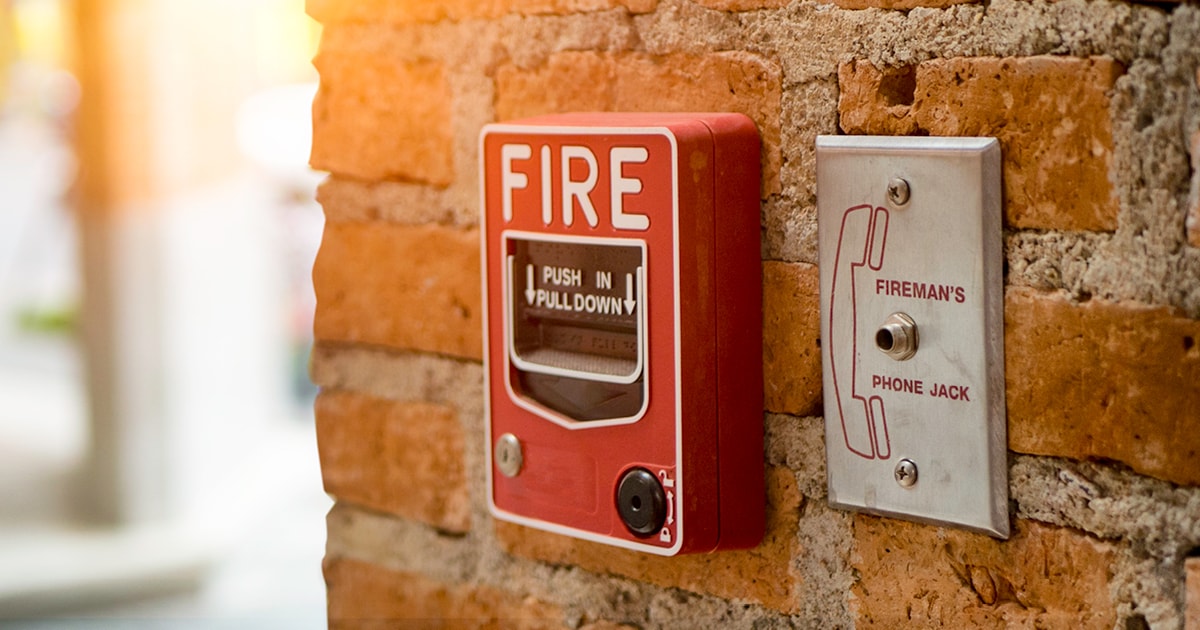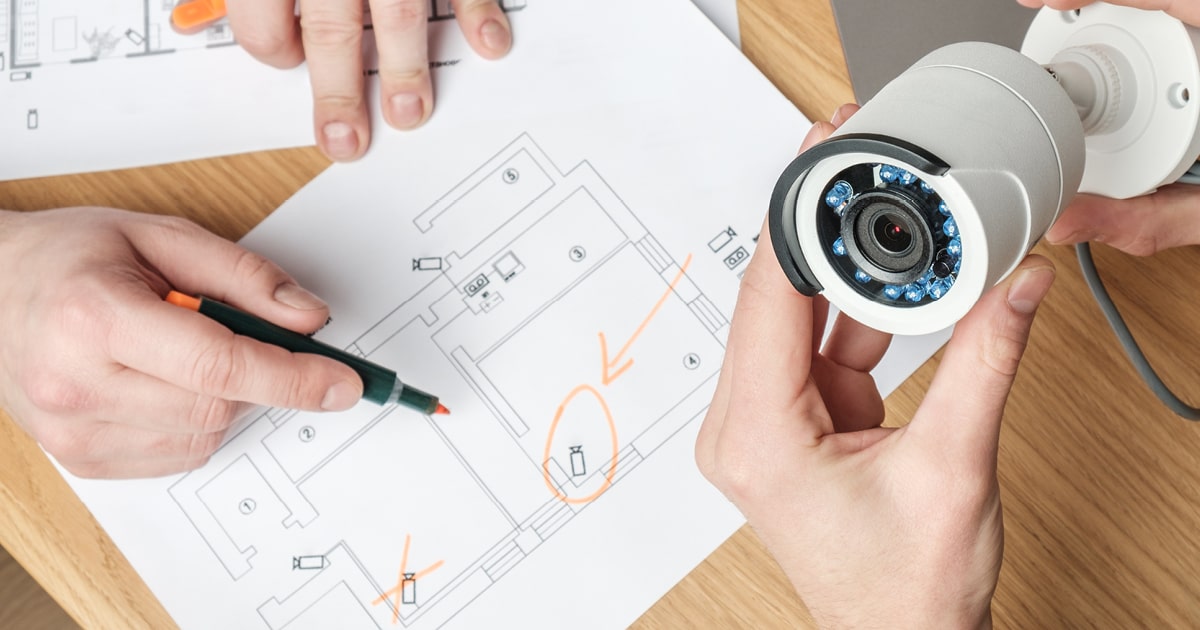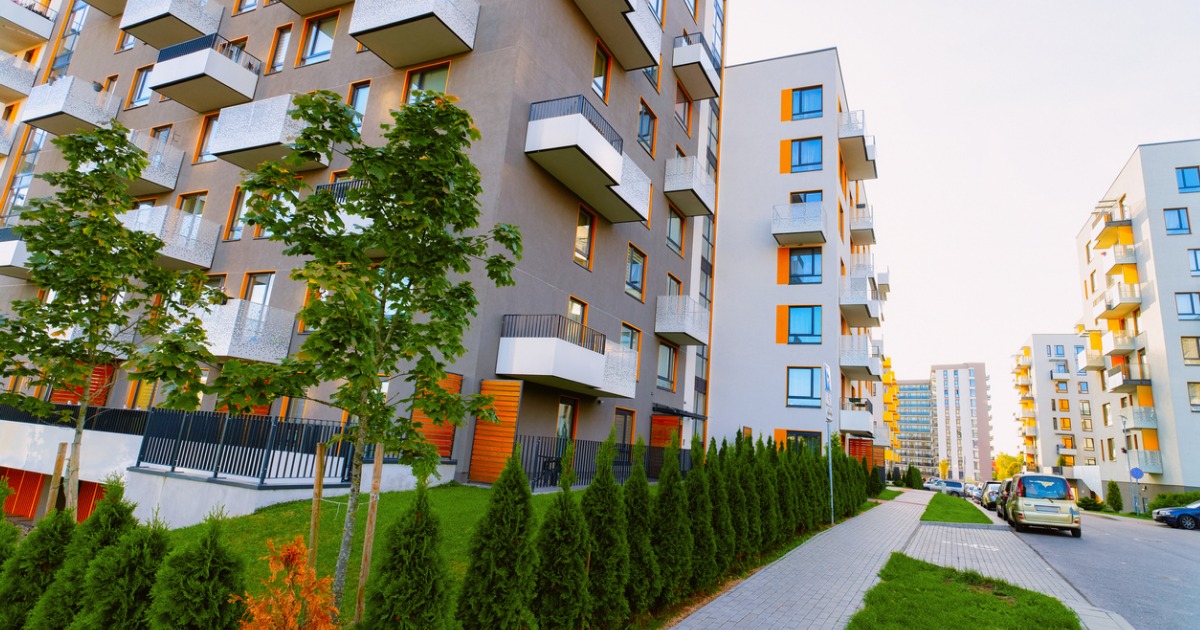How Do Fire Alarm Control Panels Work
A fire alarm control panel is the brain of any commercial fire system. It constantly monitors connected devices, processes signals, and activates alarms when necessary. Understanding how a control panel works can help business owners, facility managers, and safety professionals recognize just how vital this piece of equipment is in protecting people and property.
What does a fire alarm panel do?
A fire alarm control panel receives information from initiating devices like smoke detectors, heat detectors, and manual pull stations. If part of the system is triggered, the panel activates notification appliances and fire sprinkler systems. If fire alarm monitoring is in place, the panel will also notify the monitoring service.
In addition to reacting to emergencies, the panel also supervises the health of the fire alarm system itself. It constantly checks for wiring issues, power failures, or device malfunctions, alerting building personnel if a problem arises. These panels often simplify the fire alarm inspection process as well.
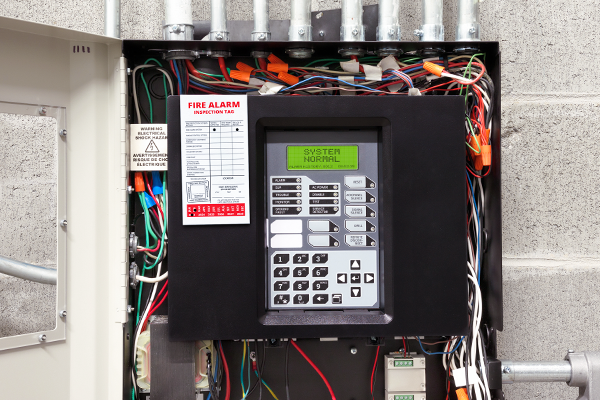
What components are connected to a control panel?
Several subsystems work together inside the panel:
- Power supply and backup: The panel connects to building power but also includes backup batteries. If power is lost, the panel can operate in standby and still sound an alarm for the time period required by NFPA 72.
- Initiating device circuits: These inputs connect to detectors and pull stations. In conventional panels, devices are grouped by fire alarm zones. In addressable panels, each device has its own digital “address.”
- Notification appliance circuits: These outputs control horns, strobes, or speakers that visually or audibly warn a building’s occupants of danger.
- Interface modules: Relays and modules allow the panel to communicate with other systems, such as sprinklers, elevators, and HVAC.
- User interface: Features like LED lights, an LCD screen, and control buttons allow operators to acknowledge alarms, silence signals, or reset the system.
What are the two main types of fire alarm control panels?
Most fire alarm panels fall into one of two categories:
- Conventional panels divide a building into zones. If an alarm occurs, the panel shows which zone is affected, but not which specific device triggered the signal. These systems are typically used in smaller structures, but Authorities Having Jurisdiction may approve them.
- Addressable panels assign a unique address to every device. When an alarm or fault occurs, the panel displays the exact device and its location. Addressable systems are more flexible and are common in larger or more complex buildings.
Are there different panel operation modes?
A fire alarm control panel can operate in several different modes, such as:
- Normal/standby: The panel monitors circuits and devices without alarms active.
- Alarm: When a device detects smoke, heat, or manual activation, the panel triggers notification appliances and may send signals to a monitoring center.
- Trouble: If the panel detects an issue such as a wiring fault, battery failure, or ground fault, it enters trouble mode and alerts building staff.
- Test: During maintenance, technicians can place the panel in test mode to verify that each device responds correctly without causing a complete building evacuation.
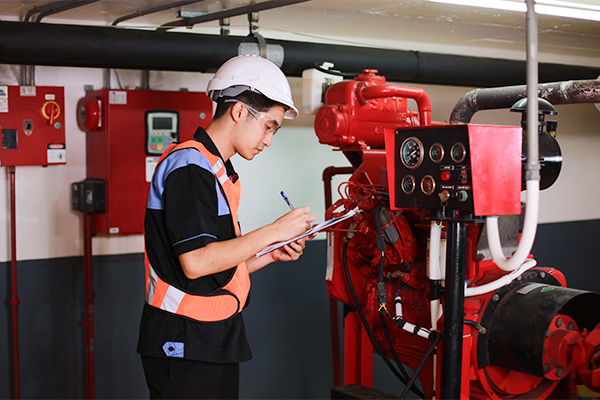
Can fire alarm panels integrate with other systems?
Modern fire alarm panels often integrate with building systems to support life safety:
- Shutting down the HVAC
- Releasing magnetic door holders
- Triggering elevator recall
- Activating fire suppression systems
This coordination ensures that when a fire occurs, the entire building responds in a way that protects occupants and supports emergency responders.
Protect your facility with FSS Technologies
Deciding on the best type of fire safety system for your facility and budget can be challenging. It requires a unique skill set to understand, design, install, and maintain these specialized systems. At FSS Technologies, we can take care of every aspect of your company’s fire prevention, protection, and suppression needs.
Whether you need a new fire alarm system, an upgrade to an addressable panel, monitoring services, or ongoing inspections, our NICET-certified team of expert technicians is here to help. With decades of experience and a commitment to code compliance, we provide the reliable protection your business deserves. Contact us to learn more.

